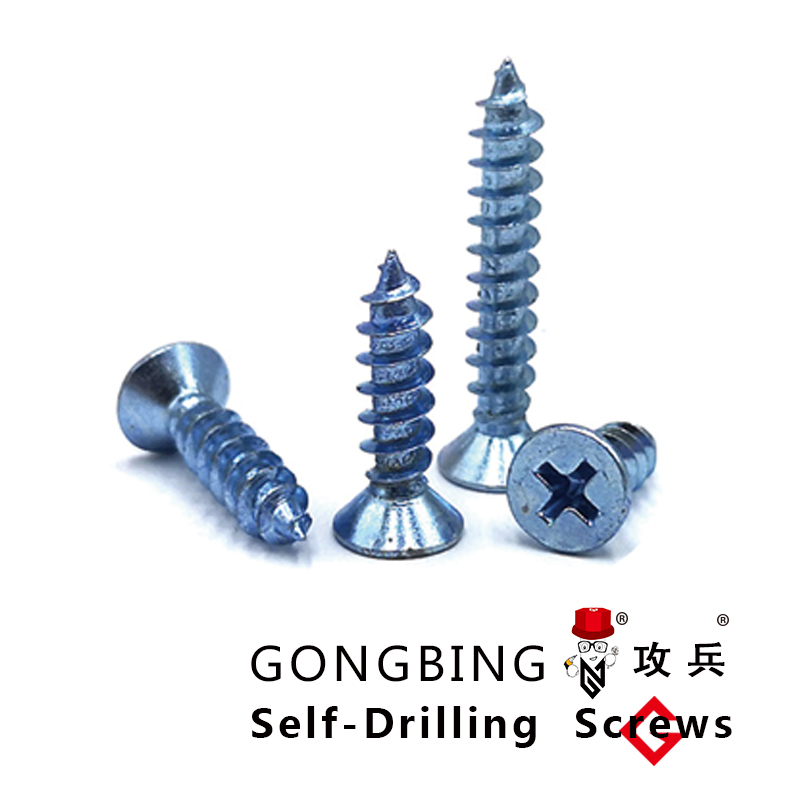Understanding the Benefits and Uses of 70mm Chipboard Screws for Your Projects
Understanding 70mm Chipboard Screws A Comprehensive Guide
In the realm of woodworking and construction, the right fasteners can make a substantial difference in the durability and quality of the final product. Among the various types of screws available, 70mm chipboard screws stand out for their specific design and application. This article aims to delve into the characteristics, uses, and advantages of 70mm chipboard screws, providing both DIY enthusiasts and professionals with essential insights.
What are Chipboard Screws?
Chipboard screws are specially designed fasteners used primarily for securing chipboard, MDF (medium-density fiberboard), and plywood. Their design features a coarse thread and a sharp point, making them suitable for penetrating engineered wood products. The screw's dimensions are crucial; in this case, the 70mm length (approximately 2.76 inches) strikes a balance between depth and accessibility, allowing for strong connections without excessive protrusion.
Characteristics of 70mm Chipboard Screws
1. Thread Design The threads on chipboard screws are typically coarse, which enhances gripping power and prevents stripping. This is particularly important when working with softer materials like chipboard, where the risk of damage is higher.
2. Screw Head Chipboard screws often feature a flat or countersunk head design, allowing them to sit flush with the surface of the board. This is not only aesthetically pleasing but also prevents snagging or interference with other materials.
3. Material Most 70mm chipboard screws are made from hardened steel, which provides strength and durability. Many are also treated with zinc or other coatings to increase resistance to corrosion, making them suitable for both indoor and outdoor applications.
4. Point Type The sharp point of a chipboard screw allows for easy penetration into the material, reducing the need for pre-drilling. This feature saves time and effort, making the assembly process more efficient.
Applications of 70mm Chipboard Screws
70mm chipboard screws are versatile and can be used in various applications, including
70mm chipboard screws

- Furniture Assembly In the manufacturing of furniture, especially flat-packed items, chipboard screws are commonly used to assemble components securely. They ensure that joints remain tight and stable over time.
- Cabinetry When building or installing cabinets, 70mm chipboard screws provide the strength needed to hold heavy doors and shelving units, ensuring they remain functional and safe.
- Flooring In some cases, chipboard screws are used to secure flooring materials. Their ability to hold firm in engineered woods makes them a reliable choice for this application.
- General Construction Any project involving engineered wood or composite materials can benefit from the use of 70mm chipboard screws. They’re a go-to solution for builders and contractors alike.
Advantages of Using 70mm Chipboard Screws
- Strength and Stability The coarse threads and sharp points provide a secure hold, which is critical for maintaining the integrity of the assembly over time.
- Ease of Use The robust design allows for simple installation without the need for special tools or techniques, making them user-friendly for both skilled craftsmen and novices alike.
- Cost-Effective Chipboard screws are generally affordable, making them an economical choice for large projects that require many fasteners.
- Availability These screws are readily available in most hardware stores and online retailers, with various packaging options to suit different project sizes.
Conclusion
When it comes to woodworking and construction projects involving chipboard and similar materials, 70mm chipboard screws are an indispensable choice. Their unique design, durability, and ease of use make them a valuable asset in a builder's toolkit. Whether you're assembling furniture, cabinetry, or tackling a DIY project, understanding the benefits and applications of these screws can lead to better results and a more satisfying building experience. Investing in quality chipboard screws not only enhances the final product but also ensures the longevity of your work.
-
Weatherproof Plastic Expansion Anchors for OutdoorNewsJun.06,2025
-
Sustainability in the Supply Chain: Eco-Friendly TEK Screws ProductionNewsJun.06,2025
-
Load-Bearing Capacity of External Insulation FixingsNewsJun.06,2025
-
Double Head Bolts: Enhancing Efficiency in Industrial MachineryNewsJun.06,2025
-
Corrosion Resistance in Chipboard Screws: Coatings for Wholesale DurabilityNewsJun.06,2025
-
Butterfly Toggle Bolts : Enhancing Structural ResilienceNewsJun.06,2025
